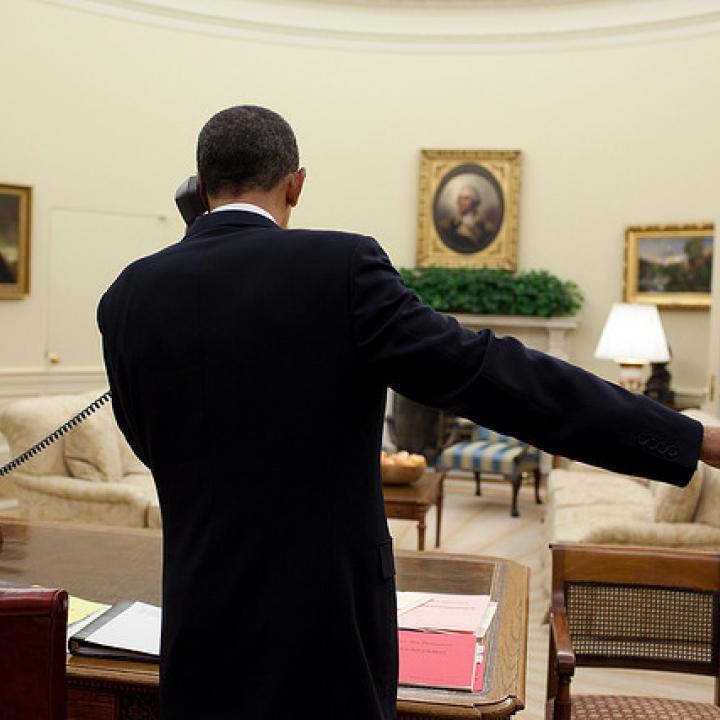

The two leaders could discuss ISIS, Libya, and other regional issues, but the act of meeting alone would do much in terms of improving bilateral relations.
Washington faces many substantial policy challenges in the Middle East, from confronting the Islamic State of Iraq and al-Sham (ISIS), to curbing Iran's nuclear activities, to managing the fallout from this summer's Gaza war. But as President Obama heads to the UN General Assembly meetings this week, he has the opportunity to get one policy issue right -- and at a very low price. By meeting with Egyptian leader Abdul Fattah al-Sisi on the sidelines in New York, the president can signal that the bilateral relationship is back on track despite the administration's deep disagreements with Sisi's repressive rule.
U.S.-Egyptian relations have been tense since July 2013, when the military responded to mass protests -- and impending state collapse -- by overthrowing the country's first legitimately elected president, Muslim Brotherhood leader Mohamed Morsi. While many Egyptians viewed Morsi as an autocrat who sought to impose the Brotherhood's theocratic agenda on them, Washington responded coldly to the undemocratic nature of his ouster and insisted that Cairo reintegrate the Brotherhood into the political process.
Three months later, after more than a thousand Egyptians were killed and tens of thousands imprisoned in an anti-Brotherhood crackdown, the Obama administration announced that it was withholding much of the $1.3 billion in annual U.S. military aid to Cairo. The goal, the administration said at the time, was to use the aid as leverage for supporting "a democratic transition and oppos[ing] violence as a means of resolving differences within Egypt."
This policy, however, has been a lose-lose proposition: withholding the aid has not only failed to stem Egypt's severely autocratic trajectory, it has also damaged Washington's strategic relationship with Cairo. Given that Brotherhood leaders have openly called for Sisi's death, the current government sees its repressive policies as essential to preventing the group's resurgence and violent retribution. Meanwhile, Cairo has sidestepped Washington's aid cut by seeking support from other countries, reportedly taking joint action with the United Arab Emirates against terrorist groups in Libya and inking a preliminary $3.5 billion weapons deal with Russia.
The administration's sour relations with Sisi have also exacerbated the growing mistrust of U.S. policy among key Persian Gulf allies. Saudi Arabia and the UAE, which are deeply skeptical of the administration's outreach to Iran and its various responses to the "Arab Spring," share Cairo's view of the Brotherhood and thus see Washington's cold shoulder toward Sisi as yet another affront. This has added to the challenges of winning regional cooperation for U.S. strategy against ISIS.
Yet President Obama can make a brand new start of the relationship by meeting with Sisi in New York. Such a meeting would provide an important, and intimate, opportunity to urge Sisi to end the repression of activists and journalists. The president could also ask Sisi about Cairo's potential plans for intensifying action against Libya-based militants, discuss ongoing counterterrorism efforts in the Sinai, and reaffirm Egypt's centrality to any initiatives aimed at preventing renewed conflict in Gaza. In addition, he could solicit Egypt's help in the campaign against ISIS, which Sisi told the Associated Press on September 20 he is "completely committed to giving support."
More broadly, a meeting would signal reaffirmation of the shared strategic interests that have sustained U.S.-Egyptian relations for the past four decades: namely, counterterrorism, regional peace, and strategic cooperation. At a moment of perhaps unprecedented regional tumult, when practically every other policy issue carries enormous challenges, this is an easy one to get right.
Eric Trager is the Wagner Fellow at The Washington Institute.



